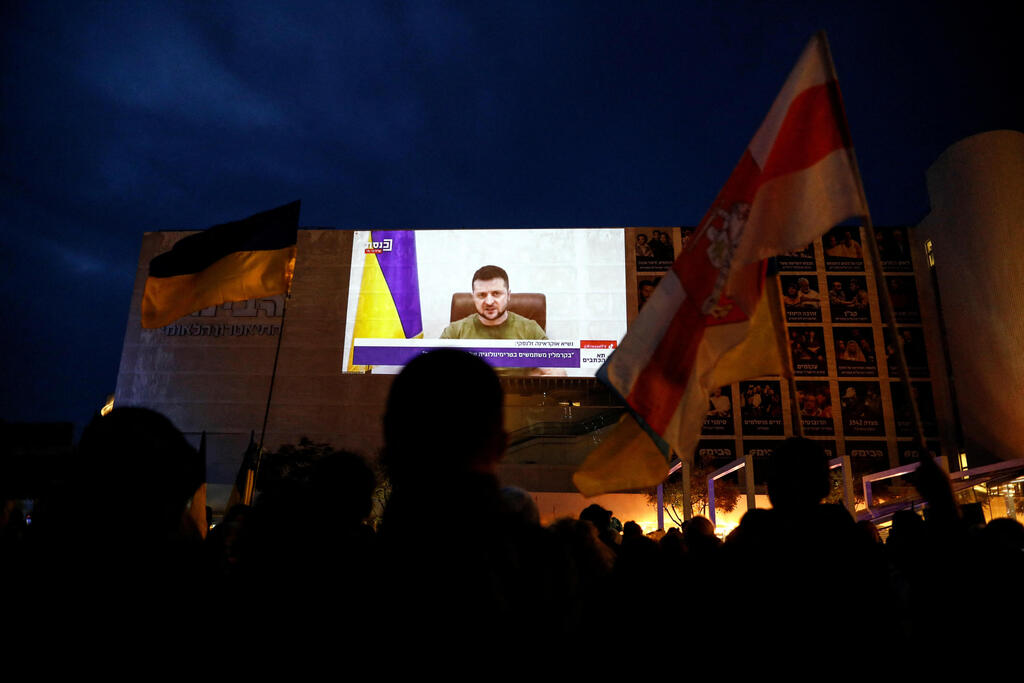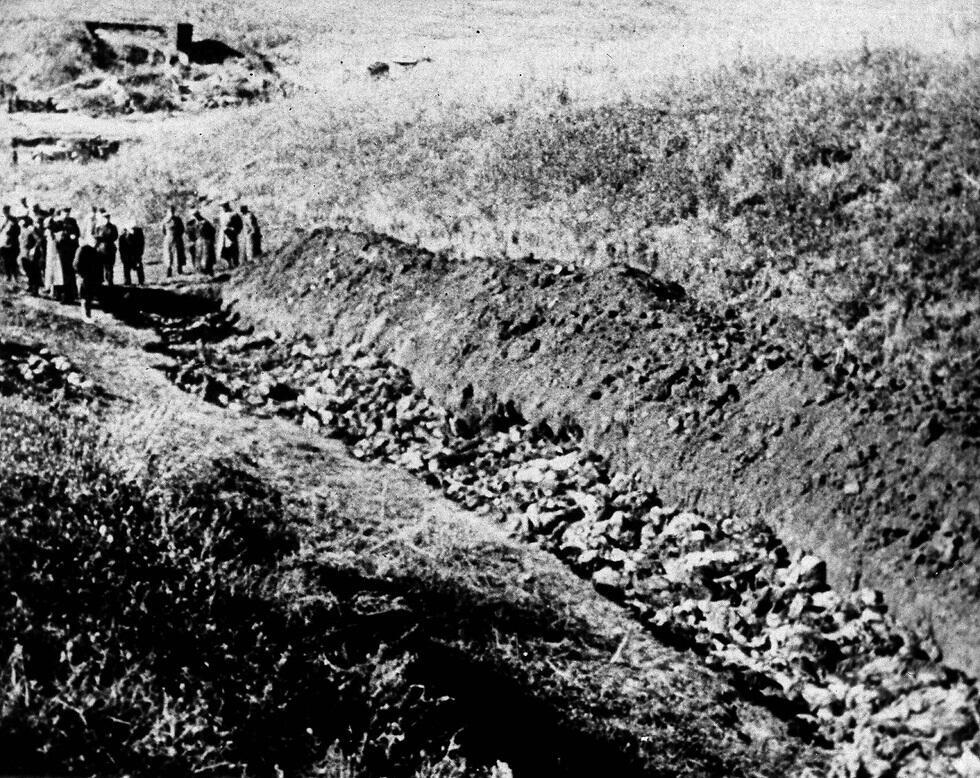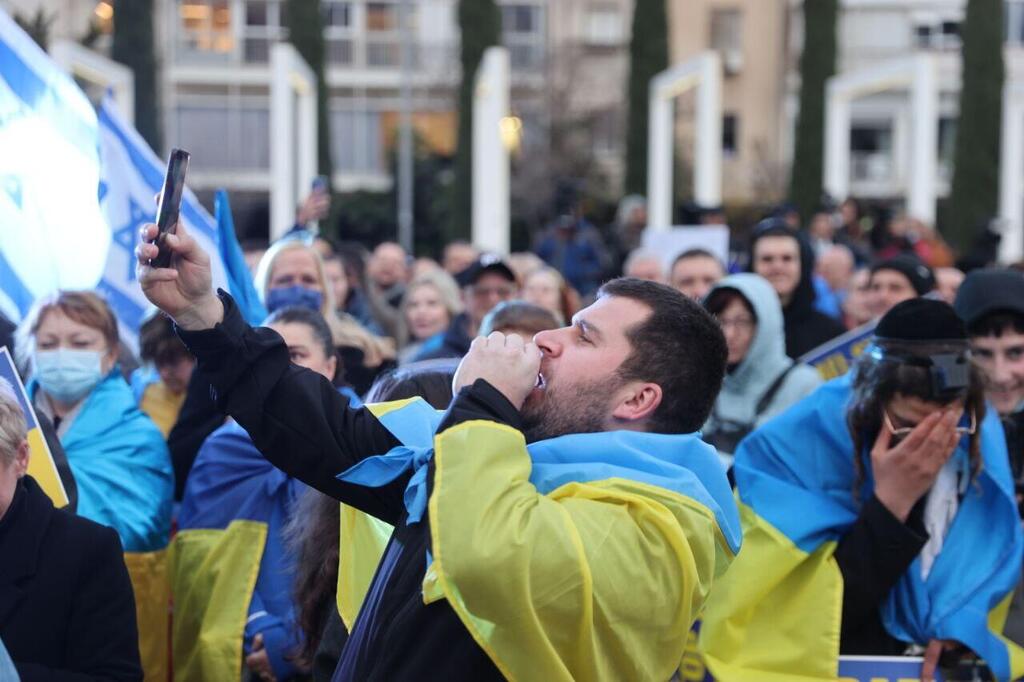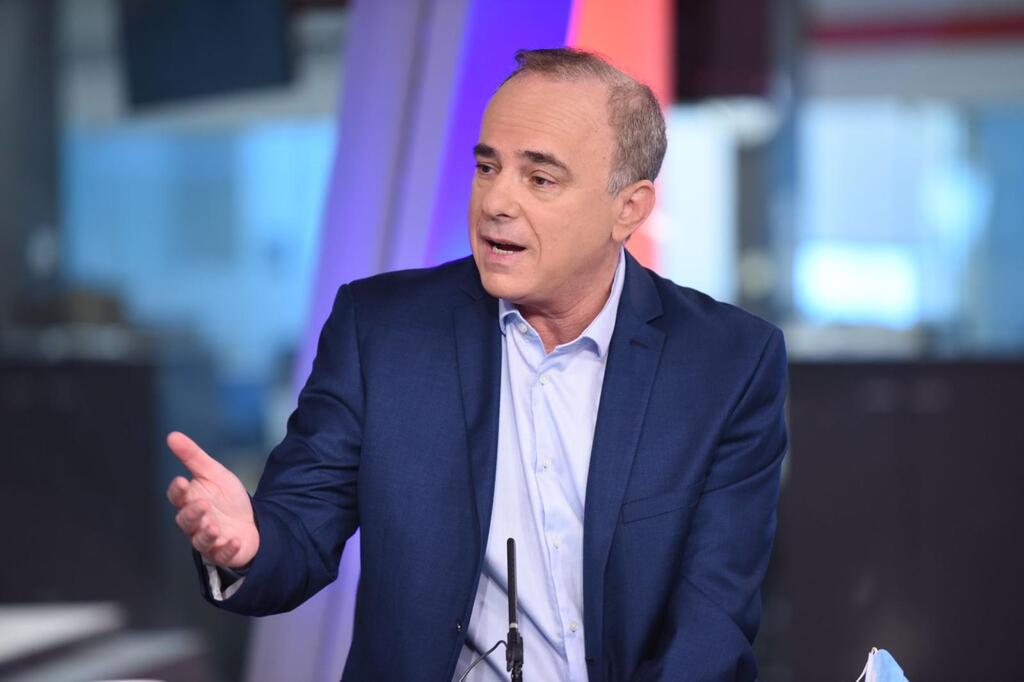Ukrainian President Volodymyr Zelensky's address to the Israeli Knesset on Sunday, in which he evoked the memory of the Holocaust, has raised the ire of some lawmakers, with some going as far as accusing him of trying to rewrite history and whitewash Ukrainians' part in the extermination of Jews.
In his remarks, the Ukrainian leader sought to draw a comparison between Russia and the Nazis, noting that the date of Russia’s invasion of Ukraine — February 24 — was also the date on which the Nazi party was founded in Germany in 1920.
4 View gallery


Ukrainian President Volodymyr Zelensky's speech before Knesset broadcast live at Tel Aviv's Habima Theater Square as a crowd of over a thousand spectators watches
(Photo: Reuters)
"Listen to the language the Kremlin uses, they use the terminology of the Nazi Party. They called it the 'final solution' to the Jewish question. You remember well, I'm sure, you'll never forget," he said.
"Now Moscow uses the words 'final solution' again regarding us, Ukraine. We see this on their official websites, there are quotes in the Russian media. This is what was said in Moscow. Without the war against Ukraine, they could not have secured the final solution to their security, just as was said 80 years ago."
A senior government official, who spoke on condition of anonymity, called the comparison "outrageous" and said that Zelensky "misstated Ukraine's role in the murder of the Jews."
Another government official, who also chose to remain anonymous, said that "the Ukrainians slaughtered Jews, many Jews. There were also Righteous Among the Nations, but the majority slaughtered Jews. Don't he dare distort history."
4 View gallery


A mass grave dug by the Nazis and their collaborators at Ukraine's Babi Yar, where over 100,000 Jewish people were massacred
(Photo: AP)
During World War Two, many Ukrainians had collaborated with the Nazis in their invasion of the Soviet Union and partook in some of the atrocities committed against Jewish people, most notably the Babi Yar massacre, in which over 33,000 Jews were systematically exterminated over the span of two days.
Communications Minister Yoaz Hendel said that while "I appreciate the Ukrainian president and support the Ukrainian people in heart and action," Zelensky should not try to "rewrite the horrible history of the Holocaust, a genocide that was carried out on Ukrainian soil."
MK Mossi Raz of the coalition's Meretz Party said that he also "did not like the comparison to the Holocaust" and that the calamities that the Ukrainian people were going through were "nothing like" those experienced by Jews in the 1940s.
"It was a lapse of judgment on his part if he thought that would appeal to Israelis. That was the least powerful part of his speech in my view," he said.
Meanwhile, members of the opposition's right flank were even less apologetic in their criticism of Zelensky.
"It is said that a person should not be judged in times of distress, but had the speech of Zelensky, the Jewish president of Ukraine, been delivered on normal days, it would have been dismissed as borderline Holocaust denial," said MK Yuval Steinitz of the Likud Party.
Religious Zionist Party Chairman MK Bezalel Smotrich said that while he thought that Zelensky's criticism of Israel was legitimate, the "outrageous and unfounded comparison to the Holocaust and the attempt to rewrite history and erase the involvement of the Ukrainian people in the extermination of the Jews in it" was not.
Smotrich's fellow party member MK Simcha Rotman responded to Zelensky's remarks with a wry comment.
4 View gallery


A large crowd had gathered at Tel Aviv's Habima Theater Square to watch Ukrainian President Volodymyr Zelensky's address to Knesset live
(Photo: Moti Kimchi)
"I don't speak Ukrainian, but if the translation I heard was accurate, Zelensky asked us to treat the Ukrainians like they treated us 80 years ago. Sorry, I think we'll have to decline his request. After all, we are a moral nation. Light unto the nations," he said.
On the other side, Foreign Minister Yair Lapid, who has condemned Russia's invasion of Ukraine on two separate occasions, thanked Zelensky for speaking before the Israeli parliament, without mentioning the Ukrainian president's Holocaust comments.
"I once again condemn the attack on Ukraine and thank President Zelensky for sharing his feelings and the plight of the Ukrainian people with members of the Knesset and the government," he said.
"We will continue to help the Ukrainian people as much as we can, and we will never turn our backs on the plight of people who go through the horrors of war."
Meanwhile, Knesset officials announced that they had blocked several attempted cyberattacks during Zelensky's speech that aimed to interrupt the live broadcast.


